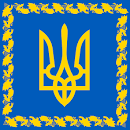PRESS RELEASE : The world must learn to live without Russian energy, through which Russia finances the terrible war in Ukraine – Oleh Ustenko and Simon Johnson
The press release issued by the President of Ukraine on 1 April 2022.
The European Union, the United States and its allies are already working to block Russia’s cash flow from energy exports as the Kremlin’s main source of geopolitical influence. This is stated in a joint article by Adviser to the President of Ukraine on Economic Affairs Oleh Ustenko and former chief economist of the International Monetary Fund, Professor at the MIT Sloan School of Management Simon Johnson for Project Syndicate.
The authors note that Russia occupies a significant place in world energy markets. It supplies 40% of the gas consumed in the European Union and also exports about 2.85 million barrels of petroleum products such as diesel and aviation fuel.
“These fossil-fuel exports have enabled Russia’s invasion of Ukraine and its extreme violence against unarmed civilians and civilian infrastructure. Russian President Vladimir Putin apparently believes that no one can stand up to him because of the naked power that he can exert through energy markets. If the Europeans resist too much, he will cut off their gas. If the rest of the world cuts back on their purchases from Russia, the price of oil will rise – causing economic difficulties everywhere,” the article reads.
But, according to the authors, Vladimir Putin underestimated the horror his invasion of Ukraine would create, especially in Europe. The European Union will certainly no longer risk its national security by importing Russian energy. Both the United States and the EU have all the tools they need to stop Russia from being a leading player in world energy markets.
“Some EU countries are already de facto boycotting Russian oil. According to TankerTrackers.com, in February, Denmark imported just over 7.5 million barrels of crude oil from Russia by ship. But in the first 27 days of March, Denmark imported no Russian crude whatsoever. Sweden, Finland, and other countries also reported big declines in Russian crude imported by tanker. And there are increasing signs that Germany and other countries will step up to lead a full and immediate embargo on imports of Russian oil by tanker into the EU,” the article reads.
Also, according to the authors, the possibility of paying for Russian gas and oil to escrow accounts, specially frozen accounts is being considered – to ensure the euro proceeds cannot be used by Russia to buy weapons anywhere in the world.
“Putin attempted to get ahead of this development by demanding payment for gas only in rubles, but the EU has rebuffed this as a breach of contract. Germany and Austria are preparing to ration the use of gas,” the authors noted.
They also point out that it will be difficult for Vladimir Putin to reorient oil exports from the European to the Asian market. After all, as the example of oil sanctions against Iran shows, if the United States, the EU, Great Britain and Norway impose sanctions banning all forms of marine insurance for tankers carrying Russian oil and refined products, most of the world’s tanker fleets will be withdrawn from the Russian market.
“The Russians have their own tankers, of course, but their fleet is too small to move more than about one million barrels per day, particularly because a lot of the crude would need to be hauled from Murmansk, the Baltic Sea, or the Black Sea all the way to Asia. Some renegade operators may attempt to enter the business, but these activities would be tracked carefully, and ship owners, charterers, and captains would most likely face personal US and EU sanctions,” the article reads.
For its part, Ukraine has already indicated it will pursue all possible remedies against anyone complicit in the financing of war crimes.
“Once the world adjusts to living with much less Russian energy, there will be no going back. No European in their right mind wants nuclear-armed Russia to have the free cash flow that its hydrocarbon exports currently provide, because that money will allow Putin (or his successors) to rearm and become even more aggressive – perhaps attacking NATO countries next time. There is no such thing as “cheap” Russian oil and gas,” Oleh Ustenko and Simon Johnson concluded.



